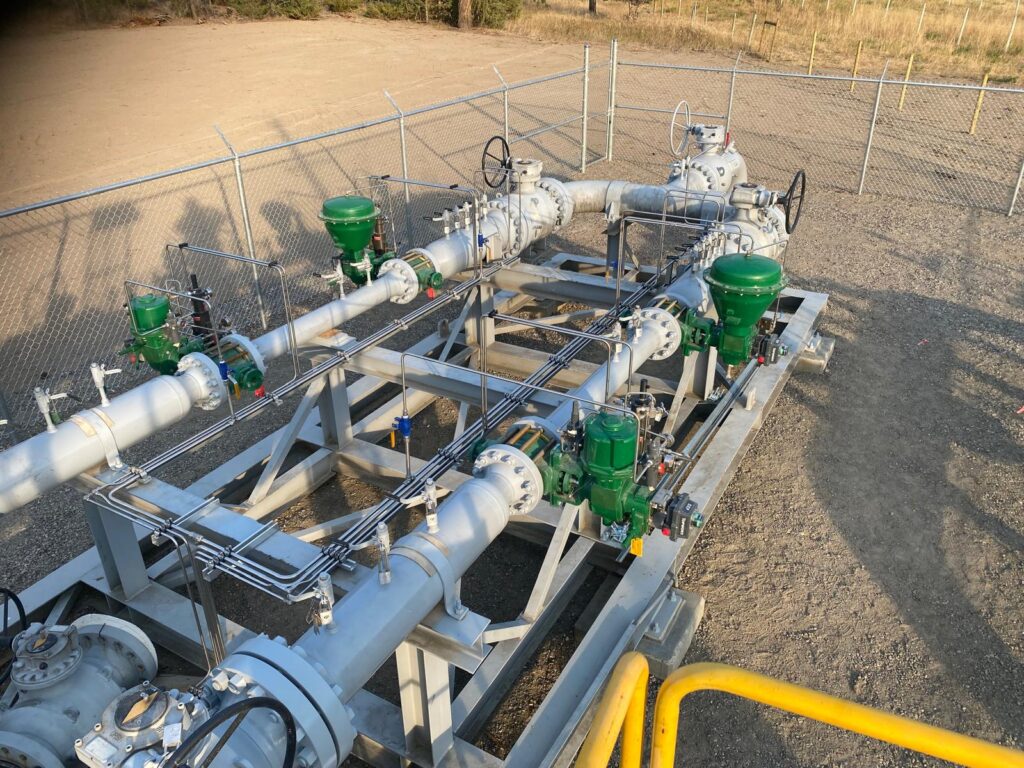Ensure your Contractor (and their Instrument Personnel) have the experience, and Inter-Provincial Red Seal Training required, to make the RIGHT decisions on your site. Choosing the right Contractor, and utilizing their fully trained Red Seal Instrument Technicians on site to perform instrument calibrations, tubing, instrument installations, loop tuning, and commissioning, are highly critical in guaranteeing the successful completion (and subsequent handover) of the project to your operational personnel. Selecting the wrong contractor, can lead to costly mistakes, significant delays and expensive cost overruns.
Many people are genuinely unaware of what it is that an Instrument Technician does and the knowledge required to fulfill their duties. The Instrument Technician must possess an Inter-Provincially registered Red Seal certification, and is a multi-skilled person who, in addition to possessing a thorough knowledge of electronic, pneumatic and mechanical instrumentation, can complete the work of the instrument pipefitter / tubing installer, and has a good working knowledge of the trades of the electrician and the process operator. The Instrument Technician also possesses a fundamental knowledge of the engineering relationships utilized in the system design.
The Instrument Technician’s responsibilities are usually assigned on a system basis prior to the system being turned over for acceptance testing. Utilizing a system description, schematic diagrams, inter-connecting wiring diagrams, logic diagrams, instrument index and, when available, loop diagrams, they become familiar with the system as a whole. Utilizing the piping and instrumentation diagrams (P&I.D.’s), they become familiar with the process flow paths in the system and the relative location of each major component. The Instrument Technician physically locates each major component and its associated instrumentation devices.
With the responsible engineer, the Instrument Technician participates in the system turnover inspection, documenting instrumentation discrepancies of the installation, tubing, wiring and component damage for the purposes of rework as necessary to ensure conformance to the design specifications.
Post-turnover responsibilities may include the purging of all associated instrument air headers and device supply lines to remove oil and foreign material, confirmation of continuity checking by the electrical contractor of all interconnecting wiring, and termination verification prior to equipment energization or the verification of isolation of all primary sensors that could be adversely affected by excessive test pressures.
Using a wide variety of precision NIST traceable test equipment (checked and recalibrated if necessary within the past 12 months), the Instrument Technician calibrates each individual instrument through the entire system recording the required data on approved calibration sheets. The calibration sheets must detail the test equipment utilized, the date the test equipment was checked and/or recalibrated, and the NIST traceable number provided by the 3rd party calibration lab. As well, the name of the The Instrument Technician performing the work, along with their certificate number must appear in the calibration sheet. They also repair or replace faulty components and assist in the resolution of problems such as transmitters of the wrong range or misapplication of control devices. When all modules of an instrument loop are calibrated, equaling or exceeding the manufacturer’s specifications, they then perform a loop calibration check to ensure the proper operation of the entire loop.
The Instrument Technician is often given the responsibility for the formulation of facility calibration procedures that could cover the calibration of individual components or control loops or the performance testing of specific instrument control systems. Additionally, the Instrument Technician is usually called upon to participate in the training of less experienced operation personnel in all aspects of their craft including safety and tagging procedures, troubleshooting techniques, the use and care of precision test equipment, or perhaps applicable test procedures at their specific location.
 Industrial Instrumentation Contracting has been Western System Controls business since its inception in 1972. We have extensive experience calibrating, tubing, installing, commissioning, servicing and maintaining process control instruments for all major industrial sectors. Including, but not limited to: Power Generation, Ore Mining and Processing, Potash Mining, Oil Refining, Chemical handling and Processing, Gas Plants and Pumping Stations, Pulp & Paper, Food Processing, Breweries, and Sewage and Water Treatment Plants.
Industrial Instrumentation Contracting has been Western System Controls business since its inception in 1972. We have extensive experience calibrating, tubing, installing, commissioning, servicing and maintaining process control instruments for all major industrial sectors. Including, but not limited to: Power Generation, Ore Mining and Processing, Potash Mining, Oil Refining, Chemical handling and Processing, Gas Plants and Pumping Stations, Pulp & Paper, Food Processing, Breweries, and Sewage and Water Treatment Plants. Western System Controls is a Union Certified Building Trades Contractor, meaning that we can attend to ALL union and non-union sites alike. Whether your project is located in Vancouver B.C., Edmonton Alberta, Regina Saskatchewan, Winnipeg Manitoba, anywhere else in Canada, or even Beijing China, our highly skilled and trained Government Ticketed Red Seal Journeyman Instrument Mechanic / Technicians are ready to travel IMMEDIATELY to handle all of your complicated process control needs.
Western System Controls is a Union Certified Building Trades Contractor, meaning that we can attend to ALL union and non-union sites alike. Whether your project is located in Vancouver B.C., Edmonton Alberta, Regina Saskatchewan, Winnipeg Manitoba, anywhere else in Canada, or even Beijing China, our highly skilled and trained Government Ticketed Red Seal Journeyman Instrument Mechanic / Technicians are ready to travel IMMEDIATELY to handle all of your complicated process control needs.
Please contact us today by phone at 250-491-5000 or through email at info@wsc.ca to learn more about how we can help with your instrument installation and servicing requirements.







